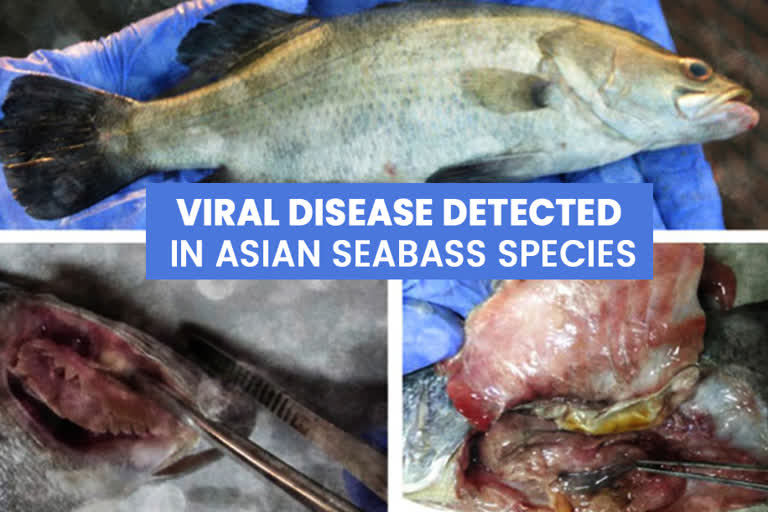Mangaluru: Red Seabream Iridovirus (RSIV) disease, a viral disease that can cause 100 % mortality in more than 30 marine and brackish water fish species, predominantly raised in the aquaculture farms, has been reported in the Western Coast of the country for the first time. A research team from the College of Fisheries at Mangaluru has identified the virus after farmers from Udupi region informed about the mortality of Asian Sea Bass (Lates calcarifer) grown in cages of their aquaculture farms.
According to Dr A Senthil Vel, Dean of the College of Fisheries the fish farmers in the Udupi region informed about the mortality of Asian Seabass (Lates calcarifer) grown in the cages and the same was brought to the notice of the Fisheries College. The disease affected fishes exhibited abnormal behaviour and clinical signs including slow-moving, lethargy, reduced feeding, erratic movement along the sides of the cages.
Pathologists from the College went to the site and collected the samples. Standard procedure was followed to identify the cause of such behaviour in the fish. The laboratory test included microscopic examination, histopathology and molecular-based assays and it was found that the Asian Seabass were infected by Red Seabream Iridovirus (RSIV).
The finding becomes significant since RSIV which was earlier unknown in Indian waters was for the first time identified and isolated in the country, said Senthil Vel.
RSIV was first observed in Japanese cultured red sea bream farm in the 1990s. More than 30 marine and brackish water fish species such as Sea bass, Grouper fish and Red sea bream are known to be susceptible to this virus. The affected fish become lethargic, exhibit severe anaemia, petechiae of the gills, and enlargement of the spleen.
